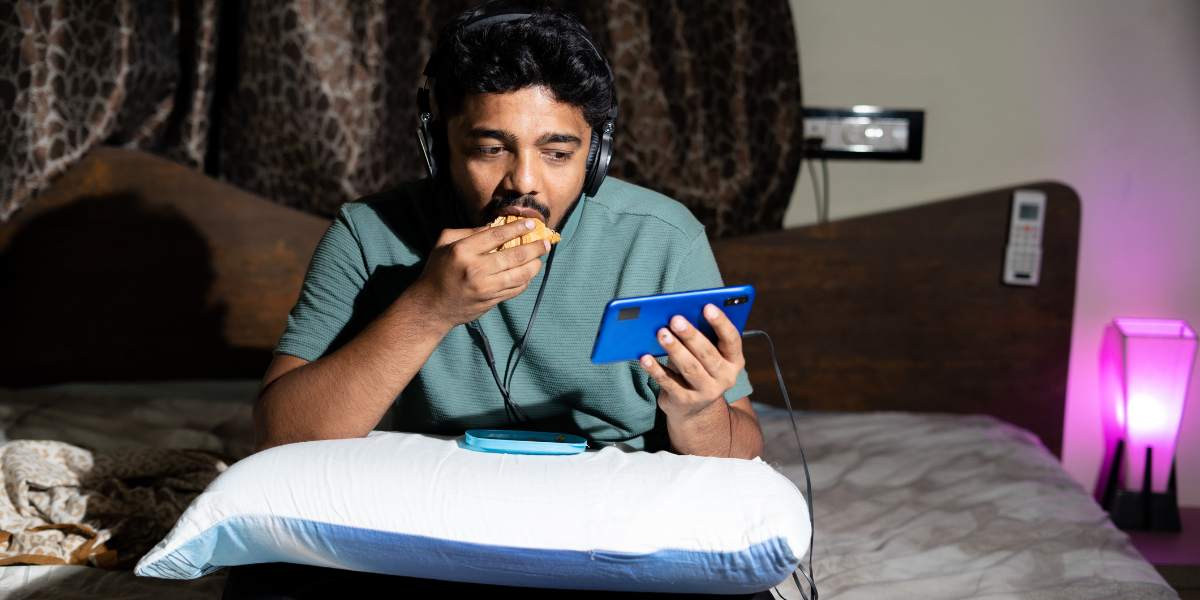Eating junk food may result in poor deep sleep, according to a new study which looked at how what we eat affects the quality of our sleep.
A group of healthy men took part in the study, following diets of unhealthy and healthy food in a random order. Researchers found that after eating junk food, the quality of the participants’ deep sleep was worse than those in the group who had ate healthily.
The research team is calling for more studies into this link as poor sleep can impact health.
- Defining junk food for tax purposes could encourage healthy food innovation
- More than 95,000 people prevented from becoming obese thanks to ban on junk food advertising on Transport for London, study says
Associate Professor Dr Jonathan Cedernaes, from Uppsala University in Sweden, said: “Both poor diet and poor sleep increase the risk of several public health conditions. As what we eat is so important for our health, we thought it would be interesting to investigate whether some of the health effects of different diets could involve changes to our sleep.”
There have been few studies which look at how what we eat directly affects how we sleep. To do so, this study made sure that the same participant followed different diets in a random order.
A group of 15 men with normal sleep habits spent time in a sleep laboratory, consuming each different diet for a week while their sleep, activity and meal routines were monitored. The junk food diet contained more sugar, fat and processed food.
Associate Professor Cedernaes said: “What we saw was that the participants slept for the same amount of time when they consumed the two diets. This was the case both while they were following the diets, as well as after they had switched to another, identical diet. In addition, across the two diets, the participants spent the same amount of time in the different sleep stages.
“But we were particularly interested in investigating the properties of their deep sleep. Specifically, we looked at slow-wave activity, a measure that can reflect how restorative deep sleep is. Intriguingly, we saw that deep sleep exhibited less slow-wave activity when the participants had eaten junk food, compared with consumption of healthier food.
- Junk food in reality TV could be fuelling obesity
- More evidence links junk food to heart disease and stroke
“This effect also lasted into a second night, once we had switched the participants to an identical diet. Essentially, the unhealthy diet resulted in shallower deep sleep. Of note, similar changes in sleep occur with ageing and in conditions such as insomnia.”
He added: “It can be hypothesised, from a sleep perspective, that greater importance should potentially be attached to diet in such conditions.”
The team said more research is necessary to understand more about the role diet has on sleep quality, as they do not know which substances in the unhealthier diet worsened the depth of deep sleep.
Read the study in full in the journal Obesity.








